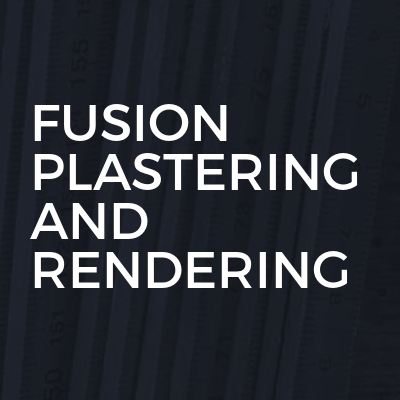Understanding Garage Conversions in Bedford
Garage conversions in Bedford have become increasingly popular as homeowners seek to maximise their living space without the hassle of moving. Transforming a garage into a functional room can add significant value to a property while providing much-needed extra space. Whether you're considering a new bedroom, office, or playroom, a garage conversion offers a versatile solution.
The Benefits of Garage Conversions
Garage conversions offer numerous advantages. Firstly, they are a cost-effective way to increase your home's living area. Unlike extensions, which can be expensive and time-consuming, converting a garage is typically quicker and less disruptive. Additionally, a well-executed conversion can significantly boost your property's market value, making it an attractive investment.
Cost-Effectiveness
One of the primary reasons homeowners opt for garage conversions is the cost-effectiveness. Compared to building an extension, converting a garage is generally more affordable. The existing structure means less construction work is required, reducing both labour and material costs.
Increased Property Value
A garage conversion can enhance your property's value by providing additional living space. This is particularly appealing to potential buyers who are looking for homes with more room but without the need for extensive renovations.
Versatility
The versatility of a garage conversion is another significant benefit. Whether you need an extra bedroom, a home office, or a playroom for the kids, a garage can be transformed to meet your specific needs. This flexibility allows homeowners to adapt their living space as their requirements change over time.
Planning Permission and Regulations
Before embarking on a garage conversion in Bedford, it's crucial to understand the planning permission and regulations involved. While many conversions fall under permitted development rights, some may require planning permission, especially if the conversion involves significant structural changes.
Permitted Development Rights
In many cases, garage conversions are considered permitted development, meaning you won't need planning permission. However, this is subject to certain conditions, such as the size and location of the garage. It's always advisable to check with the local planning authority to ensure compliance.
Building Regulations
Regardless of whether planning permission is required, all garage conversions must comply with building regulations. These regulations ensure the conversion is safe and energy-efficient. Key areas covered include structural integrity, fire safety, insulation, and ventilation.
Design Considerations for Garage Conversions
Designing a garage conversion requires careful planning to ensure the new space is functional and aesthetically pleasing. Considerations include layout, lighting, insulation, and access.
Layout and Space Utilisation
Maximising the available space is crucial in a garage conversion. Consider how the room will be used and plan the layout accordingly. For instance, if converting into a bedroom, ensure there's adequate space for a bed and storage.
Lighting and Ventilation
Garages often lack natural light, so incorporating windows or skylights can brighten the space. Additionally, proper ventilation is essential to prevent dampness and ensure a comfortable environment.
Insulation and Heating
Insulating the garage is vital for maintaining a comfortable temperature year-round. Consider adding insulation to the walls, floor, and ceiling. Additionally, installing a heating system will ensure the space is usable even in colder months.
Choosing the Right Professionals
Hiring the right professionals is crucial for a successful garage conversion. From architects to builders, selecting experienced and reputable experts will ensure the project runs smoothly and meets all necessary standards.
Architects and Designers
An architect or designer can help you plan the layout and design of your conversion, ensuring it meets your needs and complies with regulations. They can also provide valuable insights into maximising space and enhancing the room's aesthetic appeal.
Builders and Contractors
Choosing a skilled builder or contractor is essential for the construction phase. Look for professionals with experience in garage conversions and check references or reviews to ensure their reliability and quality of work.
Common Uses for Converted Garages
Garage conversions can serve a variety of purposes, depending on your needs and lifestyle. Here are some popular options:
Home Office
With the rise of remote working, converting a garage into a home office is a practical choice. It provides a dedicated workspace away from the distractions of the main house.
Additional Bedroom
For growing families, an extra bedroom can be invaluable. A garage conversion can provide a comfortable and private space for guests or family members.
Playroom or Entertainment Area
A playroom or entertainment area is perfect for families with children. It offers a safe space for kids to play and can be equipped with games, toys, and entertainment systems.
Budgeting for a Garage Conversion
Setting a realistic budget is crucial for a successful garage conversion. Consider all potential costs, including design, construction, and finishing touches.
Estimating Costs
Costs can vary significantly depending on the size and complexity of the conversion. Obtain quotes from multiple contractors to get an accurate estimate and factor in additional expenses such as furnishings and decor.
Financing Options
If your budget is tight, explore financing options such as home improvement loans or remortgaging. These can provide the necessary funds to complete your conversion without financial strain.
Potential Challenges and Solutions
While garage conversions offer many benefits, they can also present challenges. Being aware of these and having solutions in place can help ensure a smooth process.
Structural Issues
Older garages may have structural issues that need addressing before conversion. A thorough inspection can identify any problems, and hiring a structural engineer can provide solutions.
Limited Space
Garages are often smaller than other rooms, which can limit design options. Creative solutions such as built-in storage and multi-functional furniture can help maximise space.
Environmental Considerations
Incorporating eco-friendly features into your garage conversion can reduce its environmental impact and improve energy efficiency.
Energy Efficiency
Consider installing energy-efficient windows and doors, as well as LED lighting and energy-saving appliances. These can reduce energy consumption and lower utility bills.
Sustainable Materials
Using sustainable materials such as reclaimed wood or recycled insulation can minimise the environmental impact of your conversion. Additionally, these materials often add unique character to the space.
Legal and Insurance Aspects
Understanding the legal and insurance aspects of a garage conversion is essential to avoid potential issues down the line.
Legal Requirements
Ensure your conversion complies with all legal requirements, including planning permission and building regulations. Failure to do so can result in fines or the need to undo work.
Insurance Considerations
Inform your home insurance provider of the conversion, as it may affect your policy. Ensure your coverage includes the new space and any additional contents.
Frequently Asked Questions
Do I need planning permission for a garage conversion in Bedford?
In many cases, garage conversions fall under permitted development rights, meaning planning permission isn't required. However, it's essential to check with the local planning authority to confirm.
How long does a garage conversion take?
The duration of a garage conversion can vary depending on the complexity of the project. On average, it takes between four to six weeks to complete.
Can I convert a detached garage?
Yes, detached garages can be converted. However, additional considerations such as access and utilities may need to be addressed.
Will a garage conversion add value to my home?
A well-executed garage conversion can significantly increase your property's value by providing additional living space.
What are the building regulations for garage conversions?
Building regulations for garage conversions cover areas such as structural integrity, fire safety, insulation, and ventilation. Compliance is mandatory to ensure safety and energy efficiency.
Can I do a garage conversion myself?
While it's possible to undertake a garage conversion as a DIY project, hiring professionals is recommended to ensure the work meets all necessary standards and regulations.
In conclusion, garage conversions in Bedford offer a practical and cost-effective way to enhance your living space. By understanding the benefits, planning requirements, and design considerations, you can create a functional and attractive addition to your home. With the right professionals and careful planning, a garage conversion can provide the extra space you need while adding value to your property.














